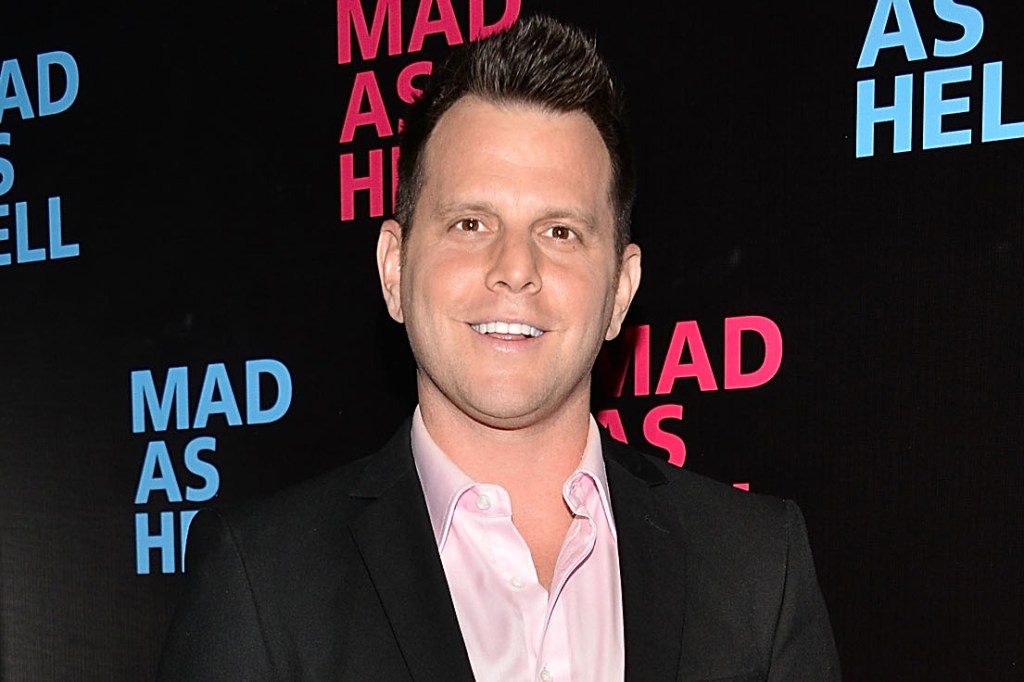Dave Rubin loves to talk about ideas. In his new book, Don’t Burn This Book, he tells the reader:‘I want you to walk into a bar and order yourselves a full-bodied opinion. I want you to get absolutely wasted on facts until 3:00 a.m., and then, when you’re just about ready to pass out, I want you to get another large glass of reality and chug it.’It’s telling that Rubin suggests that we order the opinion before the facts. Would it not make more sense to suggest, say, blending a cocktail of facts into an opinion? Rubin’s advice seems backwards to me.But it would be wrong to take this suggestion seriously. Don’t Burn This Book is not a serious work. It is, in fact, extremely lazy, bearing all the hallmarks of a project that was knocked together over a few wet weekends. The host of the Rubin Report can be an engaging, likable interviewer; he obviously has a knack for setting his guests at ease. Alone, however, he is both less substantial and more grating.Rubin loves to talk about ‘ideas’ as an abstraction, yet he does not love to talk about ideas themselves. For example, he constantly rails against the progressive left, yet quotes almost no left-wing thinkers — the ‘almost’ is generous, because I am not sure such luminaries as Ben Affleck and Cenk Uygur qualify. We therefore find such odd assertions like that the ‘left’ believes ‘Democrats = good, Republicans = bad’. Can anyone who lived through the recent Democratic primaries look me in the eye and say ‘the left’ united around the universal virtue of Democrats? These people hate each other. That this bogus premise leads Rubin to warble on for pages about Democrats backing slavery in the past only makes it more preposterous.Rubin wants to offer readers who are disaffected with left-wing ideology ‘classically liberal principles that stand the test of time’. He references his classically liberal inspirations — ‘some of history’s greatest thinkers, including John Locke, Adam Smith, John Stuart Mill, and Thomas Jefferson’. He then proceeds to never mention their works again, let alone discuss them. John Stuart Mill is referenced once, while Canadian comedian Steven Crowder is referenced twice (though as ‘Stephen’ and ‘Steven’, so perhaps Rubin thinks there are two Canadian comedians with the surname ‘Crowder’).For Rubin, classical liberalism is a vague commitment to the principle ‘live and let live’. Why? ‘Individual rights’! Where do those rights come from? Who knows! What are their boundaries? Well, Rubin thinks we should legalize marijuana, for example, but he thinks heroin should be banned:‘I know the hardcore libertarians will find this compromise a hard pill to swallow (pun intended), but we can only go to where the evidence takes us. As we’ve repeatedly seen, human beings have a track record of succumbing to indulgence — and then going off the rails into oblivion.’I agree. But if our highest principle is ‘live and let live’, why should we stop people from ‘going off the rails into oblivion’? Erm — who knows! Sure, Rubin has never claimed to be a political philosopher. But a little substance about the ‘classical liberalism’ he is so proudly attached to would have been nice.As you trudge through this book, you will find yourself asking a lot of questions, questions to which the answer is consistently ‘who knows?’. Rubin thinks American foreign policy should ‘enhance relationships with democratic allies’ and ‘spread the ideas of human freedom’ because that is ‘realist’. Hold on, I thought foreign policy realism meant upholding the national interest over everything else, not caring about freedom and democracy abroad? Did he just mean ‘realistic’? Well, who knows?To be fair, Rubin peppers his book with suggestions that we not just listen to him but make up our own minds. This is good advice. We should also not just listen to him but question his sources. For example, Rubin writes, on page 69, regarding the importance of American military might:‘…look at what happened to Ukraine. It gave up its nukes to become a Nato country (which guarantees protection to all subscribed nations if attacked), but when Russia invaded Crimea, Ukraine got zero support. The country gave up its most potent weapons for a signed bit of paper, which meant absolutely nothing. Think Ukraine regrets that now?’Ukraine is not a member of Nato, but as it happens, Ukrainian support for joining Nato has consistently risen throughout the crisis in Crimea.If there is one subject you would expect Rubin to be strong on, it is free speech. He has built most of his career on denouncing censorious voices on the left. It seems inconsistent for him to moan about leftists calling people ‘Nazis’ instead of debating them while dismissing Ilhan Omar’s ‘blatant anti-Semitism’, without so much as explaining what the infamous ‘Squad’ member said. Rubin does however offer unqualified praise for the First Amendment. Still, he seems perfectly sanguine about employers dictating what their employees can and cannot say. Colin Kaepernick had the right to kneel during the national anthem, for example, Rubin says, and the owners of his team ‘were then free to decide if they wanted to keep [him] or let him go for being too much of a distraction’. Kaepernick did not have his contract renewed rather being ‘let go’, but let’s look at the bigger picture: if bosses have the unqualified right to ‘let us go’ for expressing our beliefs, you have to wonder how free we are to express ourselves.I could go on, but there may well be diminishing returns. Above all, Don’t Burn This Book will not teach people how to think for themselves but it will make people feel good for considering themselves to be the kind of people who are independent-minded. ‘It’s so much cooler out here on the fringe,’ Rubin writes:‘…free-thinking is the new counterculture, which makes it cutting-edge and subversive, like punk rock or hip-hop in the early 1980s.’Independent thinking also makes you ‘more attractive’:‘No kidding, brains are sexy. See, groupthink is basic and that’s not hot! It requires absolutely no thought, no courage, no chutzpah. Conversely, owning your own mind is infinitely more appealing.’Yes, you too can be a cool, hot piece of ass by denying the wage gap and saying that America is the greatest country of all the time. Hell, I agree with Rubin about the wage gap, but the constant self-flattery for cleaving to fairly bog-standard mainstream conservative opinions is insufferable.
***
Get three months’ free access to The Spectator USA website —
then just $3.99/month. Subscribe here
***
Rubin gets a lot of stick for being too soft on edgy guests. Certainly, it is peculiar how the only mention of Milo Yiannopoulos in Don’t Burn This Book, who appeared on his show three times, recounts that he was accused of being a fascist, only to tip-toe around the charge without really addressing it. Does he think the charge was unfairly applied to Yiannopoulos, who he was friendly with? Fine! But be brave enough to come out and say it.Still, I do not think there is anything extreme or dangerous about Dave Rubin. Quite the opposite. His greatest talent has been harnessing progressive outrage to make half-baked Reagan Republicanism sound like a Solzhenitsynesque outpost of dissident ideas. Don’t burn this book — but I wouldn’t buy it either.

























